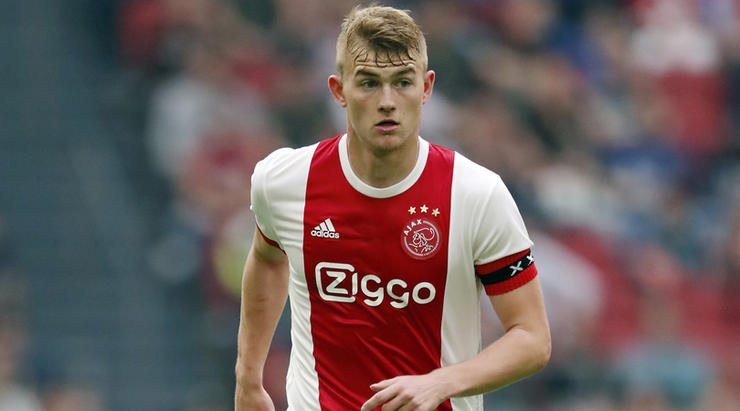Why Tottenham must NOT change their transfer strategy despite a bigger budget
A new stadium and the promise of increased funds helped to ensure Mauricio Pochettino’s new deal – but, Seb Stafford-Bloor explains, Spurs should think twice before they invest this summer
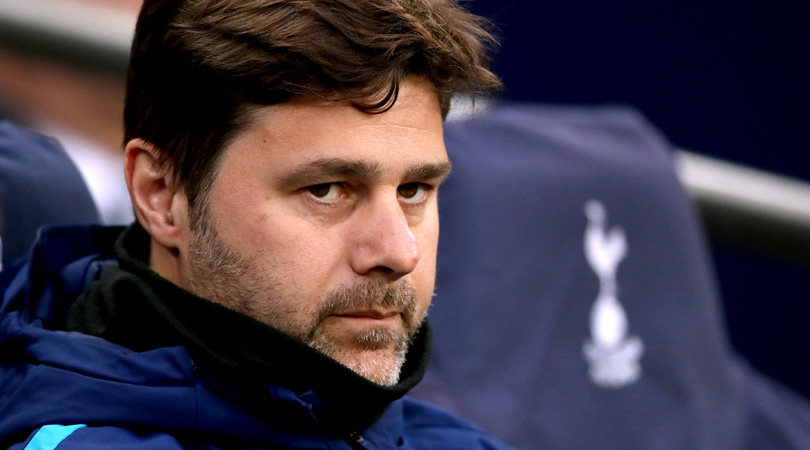
Mauricio Pochettino wanted assurances before extending his contract at Tottenham. It wasn't quite pistols at dawn with Daniel Levy, but there was evidently a series of conversations which needed to be had before the manager felt comfortable in committing his future.
The crux of the issue appears to be ambition - a horrible, loose word in modern football - and Tottenham's lack of it. Pochettino's position was presumably that, having delivered Champions League football on a relative pittance for three years straight, the club's new stadium entitled him to a slightly weightier transfer market punch.
He had a point. More importantly, one Spurs chairman Levy seems to agree with. Whatever discussions took place were enough to convince Pochettino that his future lay in north London rather than Madrid. According to reports - and figures at this time of year are all estimates - the Argentine will be supported this summer to the tune of £150m, plus any additional revenue arising from player sales.
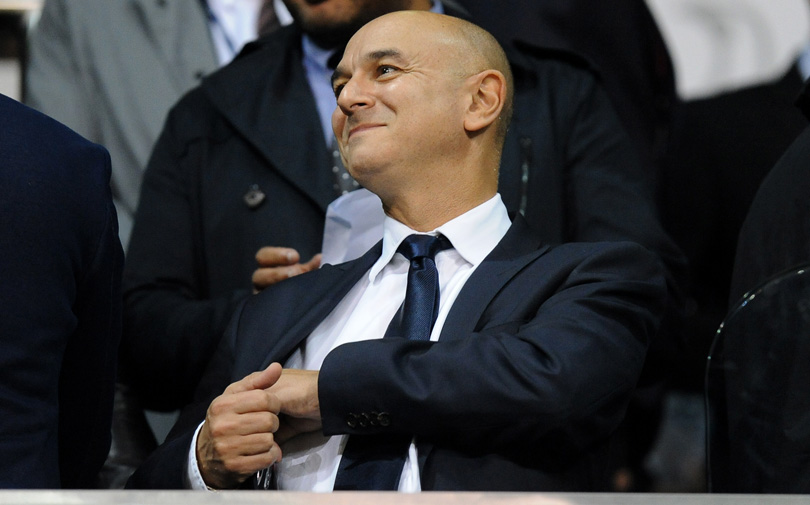
Good news. Pochettino has already proven he can do a lot with a little, so further investment should prove a useful multiplier.
Spending clever
Or, at least, it will do if Spurs remain informed by the good habits they've acquired over these past few years. After all, they occupy their current position because they've been able to outmanoeuvre wealthier rivals. Money is good, spending it wisely is better.
Pochettino himself is a natural underdog; the kind of head coach who is at his best when he has something to rage against. While there's much to admire in his management, his greatest strength appears to lie in the culture he's been able to seed. The Argentine and his technical staff have overseen terrific improvement in individual players, created a dynamic team rich in flair and built one of the best defences in the country – but all of that is rooted in the emotional hold he appears to have over his squad.
Get FourFourTwo Newsletter
The best features, fun and footballing quizzes, straight to your inbox every week.
That makes this transfer period trickier than it otherwise might be. At other clubs, where money is no object and the spotlight is guaranteed, players are naturally tamed by gravitas. Nobody walks into Manchester United, for instance, believing that they are bigger than what surrounds them. At Tottenham that shouldn't be the case either, but the cocktail is more delicate and, consequently, the club is slightly more susceptible to incoming personalities.
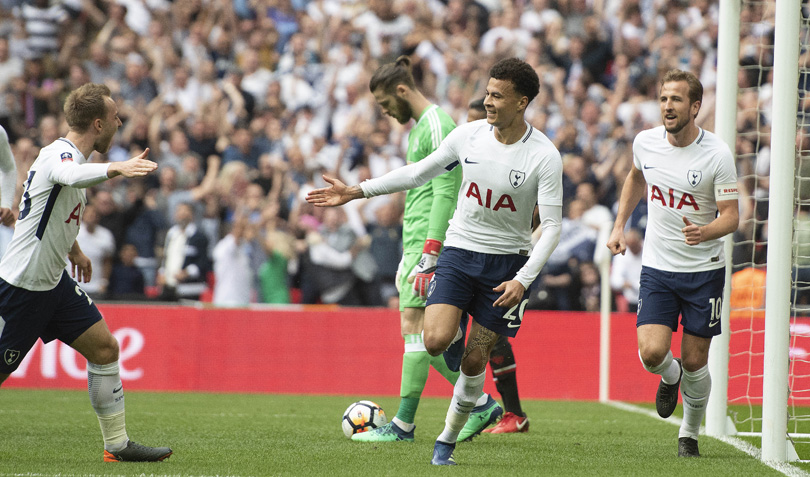
There are two implications. Firstly, it means that players with character defects and histories of challenging authority are to be left well alone. Irrespective of the statistics they compile and the way they perform on the field, they can only do harm. Secondly, any new additions must immediately understand their place within the existing hierarchy. Harry Kane is the natural star, but the club's recent progress has been driven by the performances of Christian Eriksen, Jan Vertonghen, Dele Alli and so on.
It’s important to progress this team and create competitive tension within it, but it's also essential that its incumbent parts aren't devalued, or made to feel devalued, in the process.
Targets in 2018
Tottenham are not in the habit of leaking their transfer targets – the case for season ticket renewal makes itself at the moment – but there does seem to be an accepted shortlist. Christian Pulisic is supposedly of interest, Anthony Martial too, and Wilfried Zaha's name continues to reappear.
Zaha is an interesting case. The Crystal Palace forward has been piquing curiosity in north London for some time, yet his profile makes that difficult to rationalise. He's the focal point at Palace, the be-all and end-all of their Premier League existence, and it's hard to see how he could adapt to any situation in which he was a common part rather than a star turn.
Tactically, the 25-year-old is woven so tightly into his current side's play as to be inseparable from it, but emotionally he also appears to thrive upon that dependency. Maybe he even needs it? His failure at Manchester United was a long time ago and occurred under prohibitive circumstances, but it can't be entirely discounted. He's older now, certainly wiser too, but it's reductive to assume that those issues were created by immaturity alone.
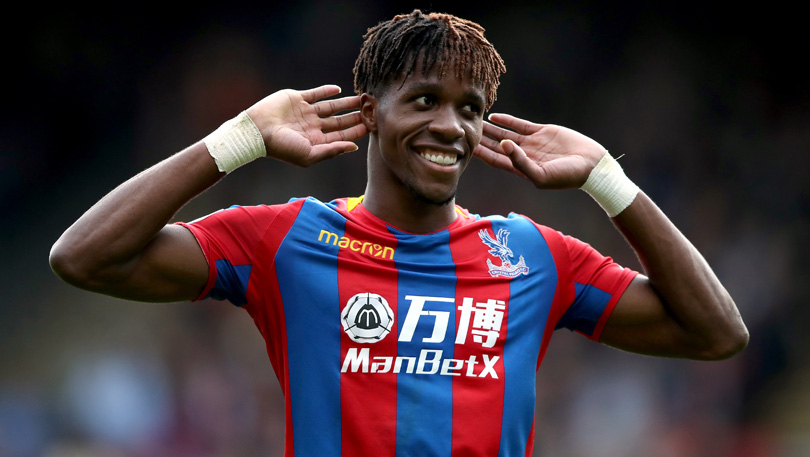
There's also scant evidence of him being a pliable player - an extremely talented one, certainly, but not one suited to the breakdown and rebuild template that Pochettino employs. One of the reasons why so few incoming players have enjoyed immediate success at Tottenham is because, with very few exceptions, they're required to relearn parts of the game in order to earn starting positions.
It requires adaptability, of course, but also a willingness and humility not often found in those who have enjoyed top billing elsewhere. So, superficially Zaha is desirable - he's an incendiary footballer who terrifies every full-back in the country - but the success of any transfer would depend on hoping against the expectation that he could handle the necessary obligations.
Tailoring games
For Zaha, possibly read Anthony Martial too. The common narrative about his Manchester United career is to ascribe his peripheral involvement to Jose Mourinho’s tactical rigidity. There’s a point there, certainly, because Mourinho is hardly known for incubating flair, but there should also be concern over Martial’s failure to meet the challenges at Old Trafford.
At New White Hart Lane (in the event of an unlikely transfer taking place), he would be expected to compete for a place in the first team and be required to tailor his game around an immovable first-choice centre-forward. Pochettino is not Mourinho, his approach to pastoral care is very different, but Martial’s career to date doesn’t suggest him to be an ideal candidate for that kind of role.
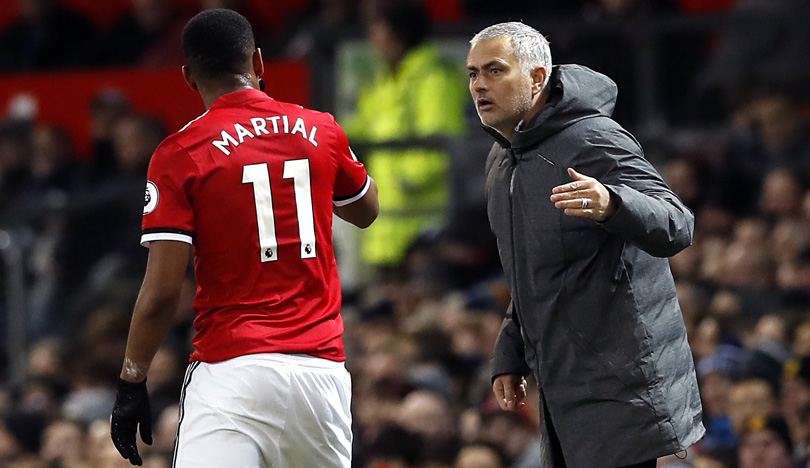
It's just a single example, but it does demonstrate how difficult this task is. The list of players who would theoretically improve this side is already short. Those who actually do so, who would be suited to the environment at the club, is a smaller group still.
A further complication lies in just how tightly knit that team is. Eric Dier and Dele Alli are famously close, Alli and Kieran Trippier went on holiday together before the World Cup, and even cultural outliers like Son Heung-min and Erik Lamela seem popular. Sides are always transient and their little networks are constantly subject to change, but any evolution has to be properly finessed - especially in this case, with chemistry so fundamental to the ability to compete.
And that's a crucial point: Tottenham are not now on an equal footing with the teams around them. They're wealthier, their future is underwritten by a large new stadium and a bushel of commercial deals, but they remain an underdog in relative terms. There’s no place for inefficiency, or for vain, crowd-pleasing transfers which provide only the illusion of progress. In fact, the pursuit of chequebook advancement brings significant danger; the threat of contamination by all sorts of sporting and social issues.
So for the club, the right player isn't just one with the most enticing attributes and the appropriate positional range, but someone who meets a far broader and more subtle criteria. Tottenham may now inhabit a better world, one soundtracked by the soft strings of the Champions League music, but it’s not risk-free and they must still proceed with their traditional caution.
Seb Stafford-Bloor is a football writer at Tifo Football and member of the Football Writers' Association. He was formerly a regularly columnist for the FourFourTwo website, covering all aspects of the game, including tactical analysis, reaction pieces, longer-term trends and critiquing the increasingly shady business of football's financial side and authorities' decision-making.
